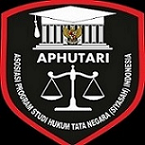Tinjauan Hukum Islam Terhadap Penggunaan Obat Dalam Hubungan Seksual
Abstract
The problems in this study are How to Use Drugs in Husband and Wife Sexual Relationships in Padangsidimpuan City and How to Review Islamic Law Regarding the Use of these Drugs. The purpose of this study was to determine the use and review of Islamic law on the use of drugs in sexual relations between husband and wife. This type of research is field research. The data sources of this research are primary and secondary legal data. Data collection techniques are observation, interview and documentation. Data processing and analysis techniques are collecting data and conducting data analysis processing, which is processed and analyzed. The results of this study indicate that the use of drugs in the fulfillment of sexual relations between married couples in the city of Padangsidimpuan is one of the efforts of a couple that provides benefits with the aim of maintaining household harmony and to avoid harm, namely quarrels that lead to divorce. The results of this study indicate that the use of drugs in the fulfillment of sexual relations between married couples in the city of Padangsidimpuan is one of the efforts of a couple that provides benefits with the aim of maintaining household harmony and to avoid harm, namely quarrels that lead to divorce. In the Maslahah Mursalah theory, the use of this drug falls into the category of maṣlaḥah hajiyat which is not directly related to the fulfillment of basic human needs, but indirectly aims to alleviate and facilitate the fulfillment of basic human needs, including preserving religion, soul, reason, descent, and property. However, if the use of this drug is excessive and does not pay attention to medical regulations, it will have an impact on the health of the user. In other words, this drug cannot bring benefits but can also cause harm.
Keywords
Full Text:
PDFReferences
Harahap, Ikhwanuddin. “Memahami Urgensi Perbedaan Mazhab Dalam Konstruksi Hukum Islam Di Era Millenial.” Jurnal Al-Maqasid 5, no. 1 (2019): 1–13.
Hasiah. “Pesan-Pesan Al-Qur’an Tentang Keluarga Samawa.” Jurnal Al-Maqasid 5, no. 1 (2019): 1–27.
Kurniawan, Puji. “Perjanjian Perkawinan; Asas Keseimbangan Dalam Perkawinan.” Jurnal El-Qanuniy 6, no. 1 (2020): 125–37.
Nasution, Muhammad Arsyad. “Pendekatan Dalam Tafsir (Tafsir Bi Al Matsur, Tafsir Bi Al Ra’yi, Tafsir Bi Al Isyari).” Jurnal Yurisprudentia 4, no. 2 (2018): 147–65.
Siregar, Fatahuddin Aziz, Hasibuan, Juriyana Megawati. “Efektivitas Pelaksaan Peraturan Pencatatan Perceraian Di Kantor Urusan Agama.” Jurnal El-Qanuniy 6, no. 1 (2020): 1–15.
Siregar, Fatahuddin Aziz. “Ciri Hukum Adat Dan Karakteristiknya.” Jurnal Al-Maqasid 4, no. 2 (2018): 1–14.
Siregar, Fatahuddin Aziz. “Dimensi Jender Dalam Hukum Kewarisan Islam.” Yurisprudentia:Jurnal Hukum Ekonomiprudensi 1 (2015): 17–29.
Siregar, Sawaluddin. “Hakikat Kuliah Kerja Lapangan Dan Perubahan Masyarakat Kec. Dolok Kab. Padang Lawas Utara.” Jurnal Al-Maqasid 5, no. 2 (2019): 230–42.
Siregar, Sawaluddin. “Wasilah Ibadah Agung Yang Banyak Terselewengkan.” Yurisprudentia 3 (n.d.): 124–40.
Siregar, Syapar Alim. “Pengedar Narkoba Dalam Hukum Islam.” Jurnal Al-Maqasid 5, no. 1 (2019): 111–24.
DOI: https://doi.org/10.24952/el-thawalib.v1i2.3227
Refbacks
- There are currently no refbacks.










Jurnal El-Thawalib is licensed under a Creative Commons Attribution-ShareAlike 4.0 International License. Copyright © 2022 Jurnal El-Thawalib All rights reserved.



